Intuitive Eating and Exercise
- April 26, 2017
- Last Updated: June 29, 2023
- 28 Comments
- Intuitive Eating
Are you trying to learn more about intuitive eating and exercise? Can you have a healthy relationship with both? Let’s break down what the science says about intuitive exercise.
As an Amazon Associate, I may earn from qualifying purchases. You can read more here on our Disclaimer and Privacy Page.
By this point, I’m sure many of you have heard of the term, “Intuitive Eating.”
If you’re not sure where to begin, I recommend checking out the best intuitive eating books and this guide for intuitive eating for beginners.
What you may not be familiar with is…intuitive exercise. But yes…your relationship with intuitive eating and fitness matters!
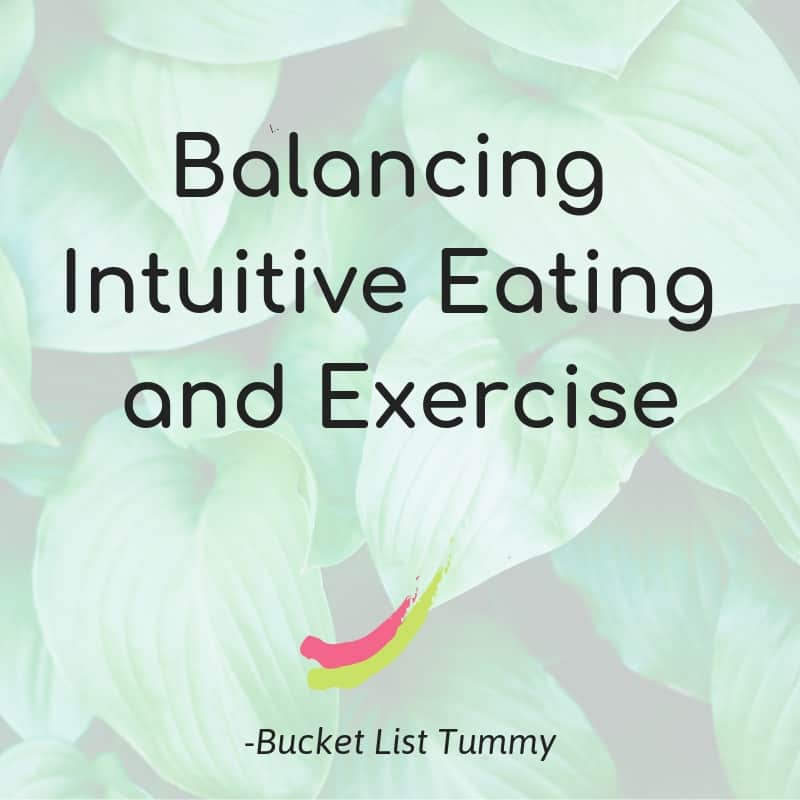
I think it’s a great book for EVERYONE to read, and it’s a must for my clients who have dealt with disordered eating and/or thoughts.
It is also great for those who have become far removed from his/her hunger cues and have no idea how to honor hunger and can’t identify practical hunger.
I saw something recently in a thread or forum about running and intuitive eating, so I thought intuitive eating and working out may be something more people want to learn about. intutiive
So, how can we balance intuitive eating and exercise?
What is Intuitive Eating?
Intuitive eating is a way of eating and almost a philosophy of life. There are 10 principles of intuitive eating, many of which we have covered in more depth.
- Reject the diet mentality
- Honor your hunger
- Make peace with food. In this principle, we talk alot about learning to give yourself unconditional permission to eat.
- Challenge the food police
- Feel your fullness
- Feel satisfied after eating
- Cope with your emotions without using food
- Respect your body
- Exercise to feel the difference
- Honor your health – Learn what it means to be healthy
These principles are overarching across your lifestyle, and I feel that they are something we are always working towards, and never completely achieving.
They are more like an experience, not a destination, if that makes sense.
There is no perfect way of “intuitive eating,” but it’s about progress and learning to check in with yourself.
Intuitive eating talks about exercising not for burning calories, but moving in a way that makes you feel good.
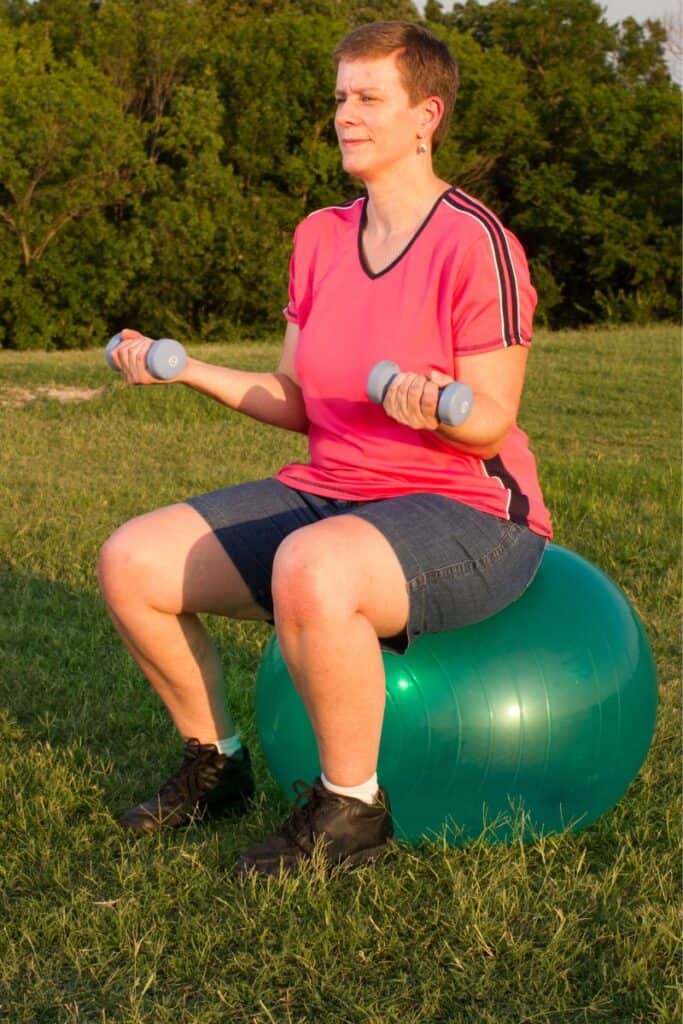
How to Practice Intuitive Exercise
Think of exercise as a way to take care of yourself and plan for the future.
Intuitive exercise takes into account how you feel each day, rather than going by a strict regimen or plan.
We want to promote exercise. There’s no denying that it has many health benefits aside from burning calories, like:
- Increased bone, heart and lung strength
- Increased stress tolerance and improved mood
- Decreased blood pressure & blood sugar
- Increased HDL (good cholesterol), decreased total cholesterol
- Reduced risk for chronic diseases, including heart disease, diabetes, osteoporosis, hypertension and some cancers
- and much more!
I’m a big fan of exercise (running and weights) because it helps me think clearer throughout the day. It improves my mood and energy.
It helps relieve my stress, along with many other things.

I can tell a difference on days I exercise and days I don’t.
With exercise, however, it’s important to also consider our food habits that may or may not support that exercise.
This is where the mental, or practical side, of intuitive eating comes in. Sometimes we have to override certain mechanisms to make sure we eat enough.
Longer or more intense exercise is known to damper appetite in many people. It is common to not feel hungry after a workout.
But, we can’t eat less if we are exercising more.

When Intuitive Eating May Not Work with Exercise
Intuitive Eating isn’t for every situation, at least not initially.
I have found that the intuitive eating principles can be a little trickier for athletes, or people who are very active.
Especially if people are exercising for the wrong reasons (only to lose weight and count calories) or were far removed from hunger cues in the first place.
As a matter of fact, if you have a past of disordered eating, endurance exercise probably isn’t right for you while you are recovering.
There have been studies showing that retired athletes often need to relearn their physiological hunger signs.
The core principle of intuitive eating revolves around tuning into your hunger and honoring what that may be.
Yet, some people don’t have an appetite after a run or hard workout.
In these cases, intuitive eating may not be right for you around exercise.
You may be wanting quinoa with vegetables, but you may really need the decorated pizza with extra cheese and a side of garlic bread.
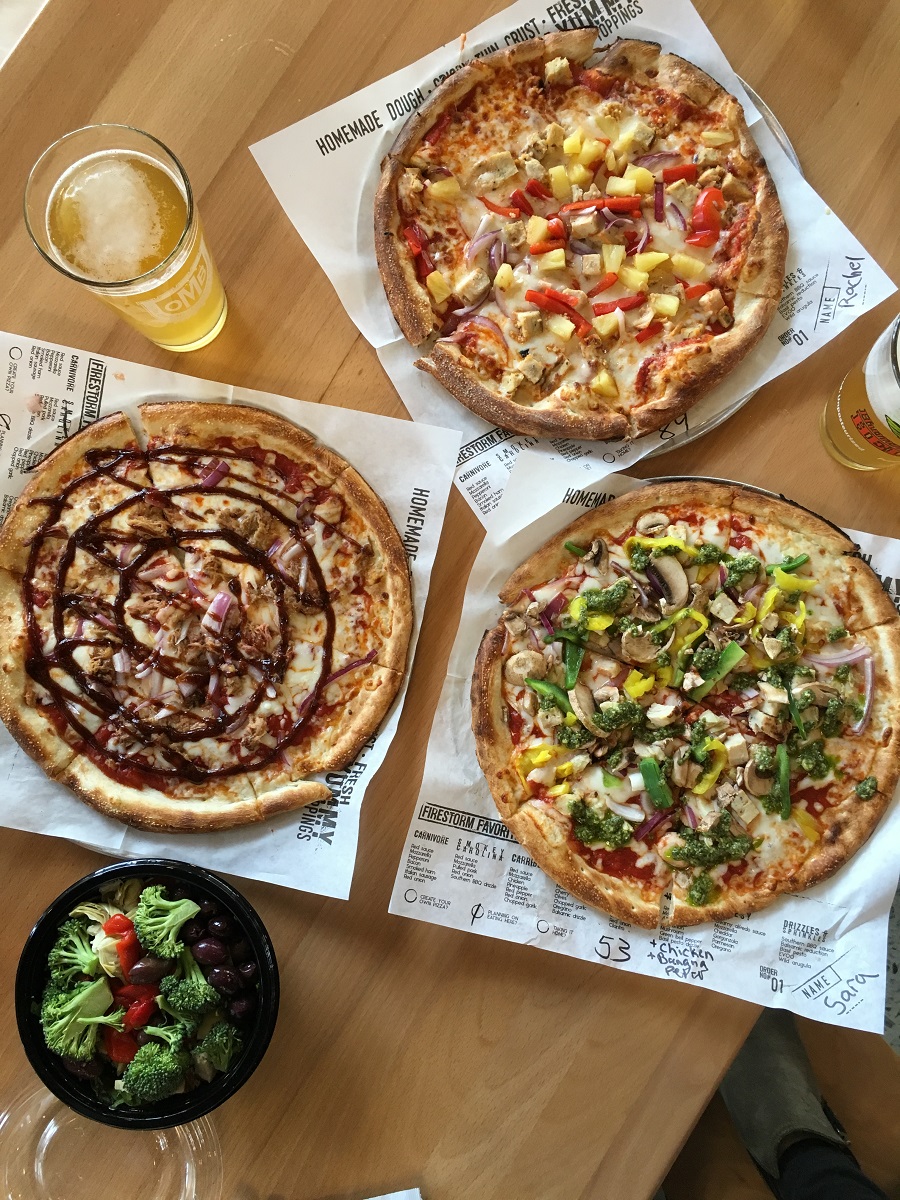
Part of intuitive exercise is making sure you eat enough.
You can honor your body by exercising because it makes you feel good. Not because you feel like you have to, or not to just burn off the dessert you ate last night.
Similarly, you also need to honor your body with fuel before and after an upper body workout.
Nearly 95% of the time, I’ll tell you to let your body guide your food choices.
But that other 5% may require you to just eat in order to take care of your body.
Drink a post workout smoothie. Have a chocolate dessert at night. Whatever can work for you.
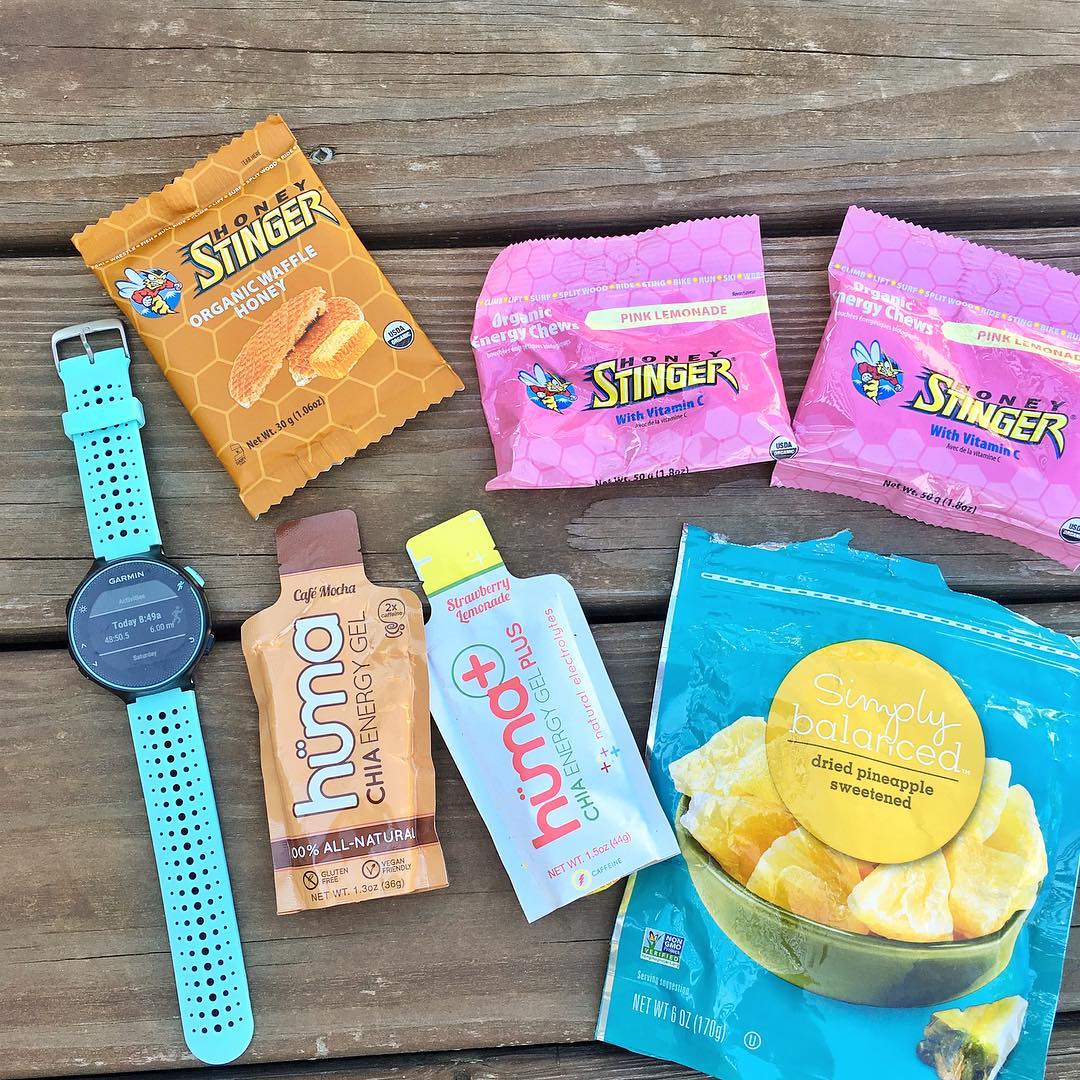
Intuitive Exercise Doesn’t Mean Exercise More and Eat Less
The goal is not to wear yourself thin, and eat less while you move more. Even if you don’t have an appetite, that’s not best for your body.
When you use up all of your muscle stores (glycogen), you need to replenish them if you want to keep exercising in the future.
You can do more damage to yourself in the long run by skipping your post exercise meal/snack.
When you don’t get sufficient fuel in the necessary post exercise window, you may further break down your muscles.
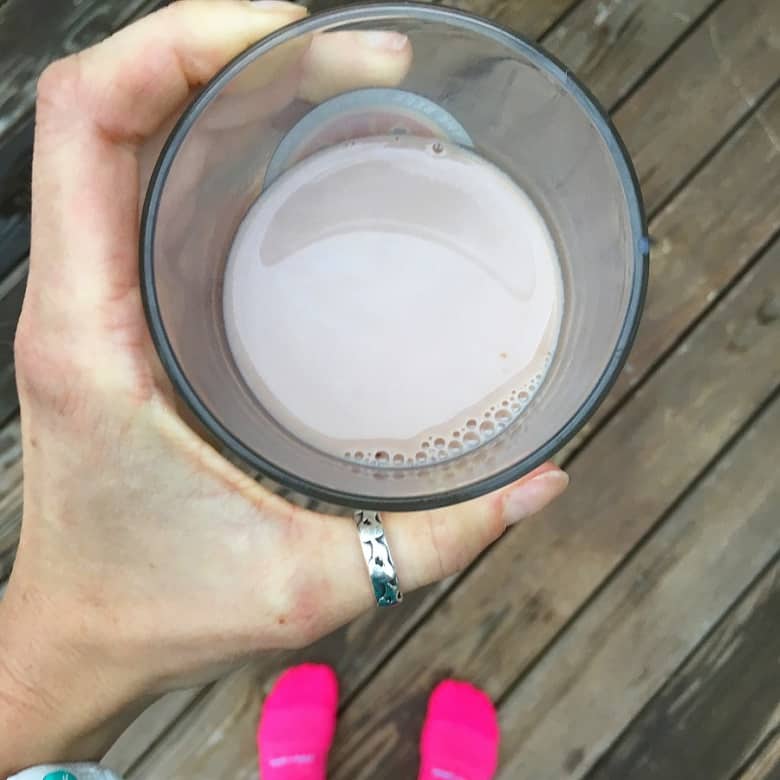
You may think you’re doing your body a favor because you’re listening to your hunger and feeling your fullness (i.e. you have no appetite), but sometimes, we have to let our brain play a role in our nutrition too.
We need to know better. Because intuitive exercise isn’t about weight loss, remember?
Changing our body shouldn’t be the reason we exercise. Or the only reason.
Many people struggle with negative body image. It’s prevalent in our society.
Regular exercise often leads to an improved body image. Which is true, but also, can perpetuate the body cycle for others.
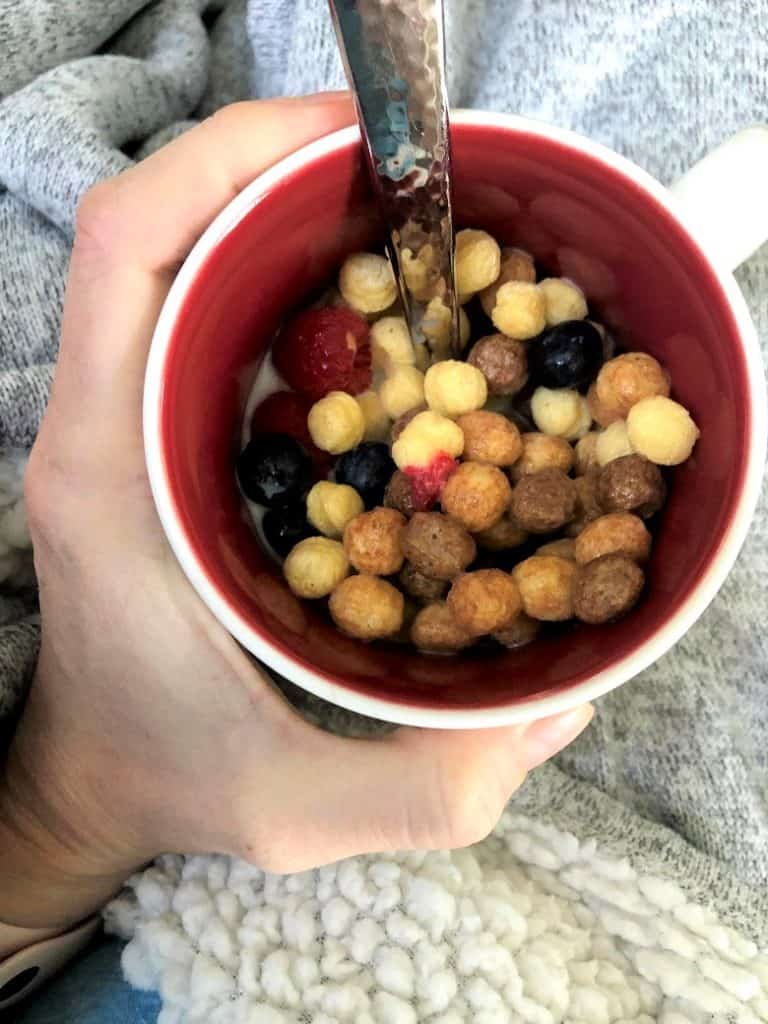
Females in particular, struggle in meeting their daily carbohydrate guidelines, which chronically can have negative impacts across the board.
It can impact the next workout, relative energy, mood and cognitive function, iron levels, menstruation, etc.
This is why many females I work with struggle with craving carbohydrates – the body is smart!
When you’re exercising for over an hour, you no doubt need to eat more than your usual amount of food, whether that be in the form of an extra meal or snack, or larger portions elsewhere.
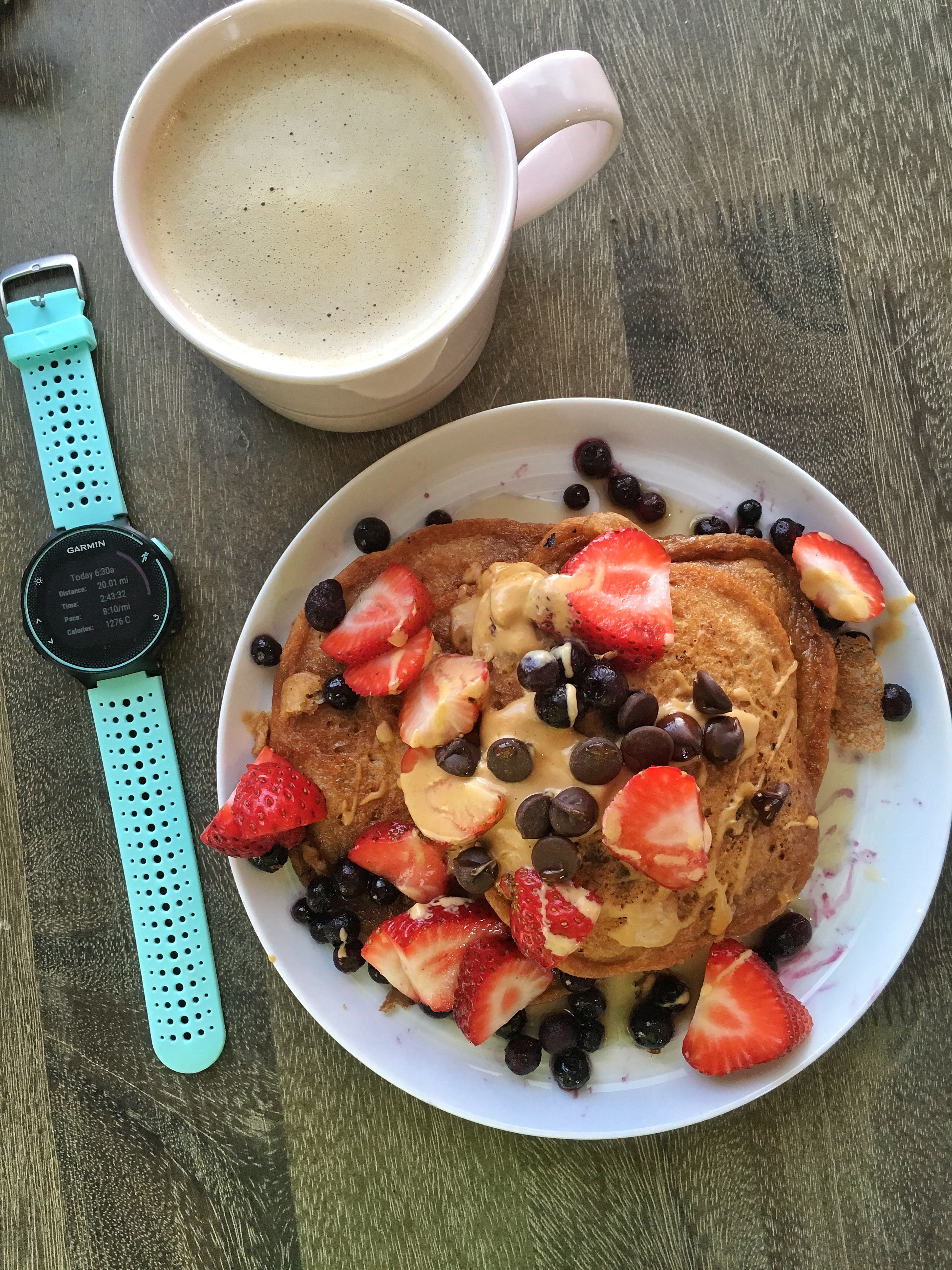
Giving Your Body What it Needs
Now, let’s talk about the other side of the coin with tuning into your intuitive nature.
You may be chronically hungry, or hungrier on some days. It can take our bodies days to catch up from underfueling or overexercise.
Don’t feel like you need to justify your food choices. And don’t feel shameful for a roaring appetite or feel guilty when eating if this is the case.
That may be your body’s way of asking for more fuel, and being able to tune into that is a principle of intuitive eating.
Understand that it’s okay to give yourself permission to eat more when your body calls for it, and feel the satisfaction that eating food can provide – food that fuels your body.
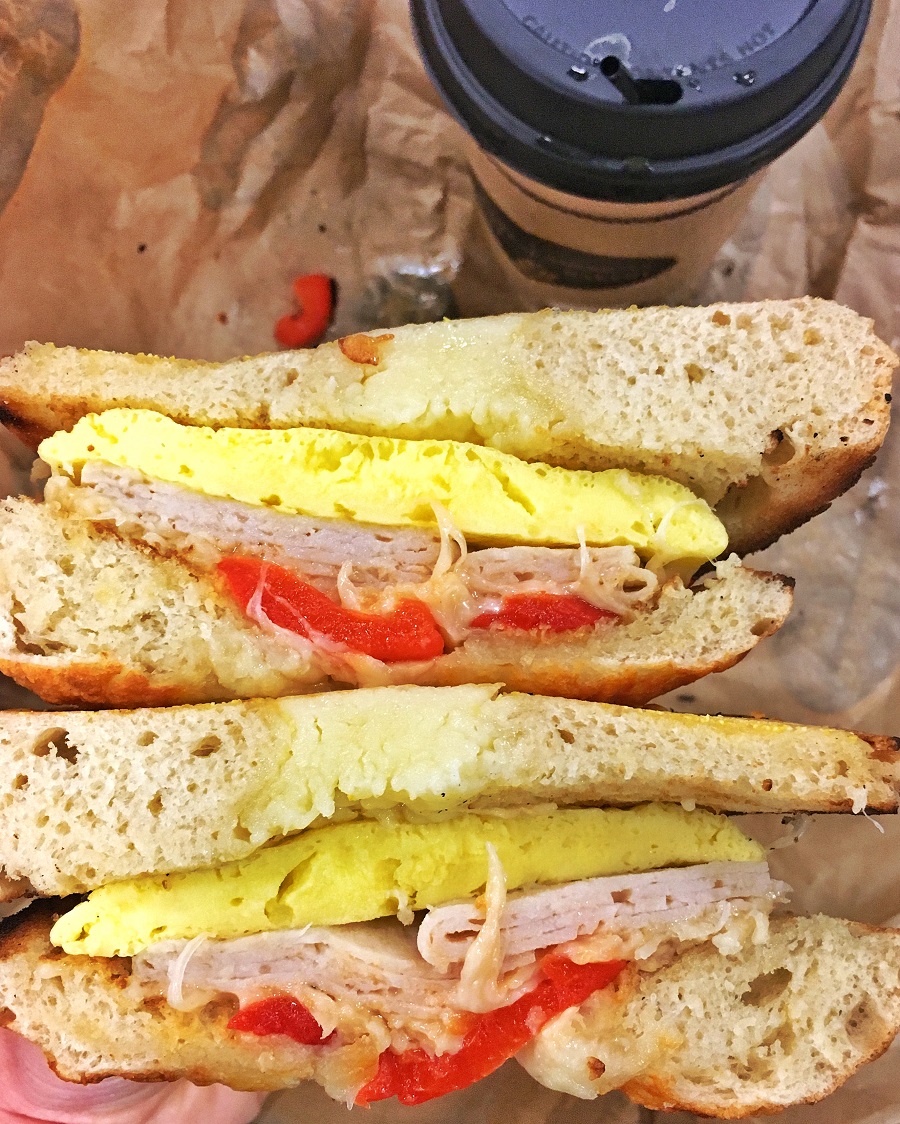
Combining Intuitive Eating and exercise means tuning into your body’s needs – being aware of the times you need more fuel, even if you’re not feeling hungry but you know you should eat.
Or, eating more not because you worked out that day but because your body is asking you for it and you have a roaring appetite.
Because it’s working so dang hard to power you through that exercise.
Neither situation is right or wrong, but both require a different kind of attunement.
Why are you exercising in the first place?
Likely because you enjoy it (hopefully), and you want to take care of your body. So, we need to think about eating enough to fuel the exercise and recovery, too.
Because that is showing our bodies love and respect.
Support Bucket List Tummy







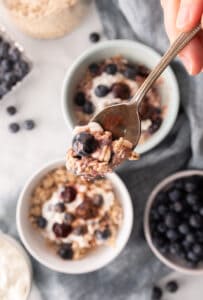



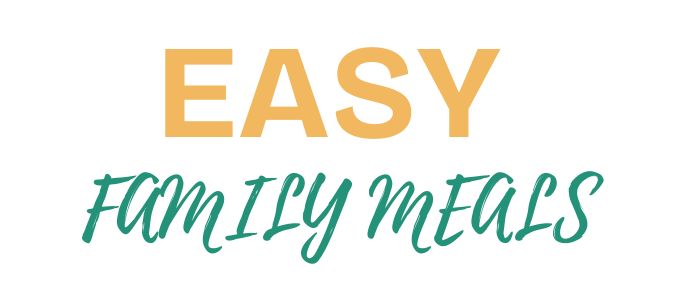
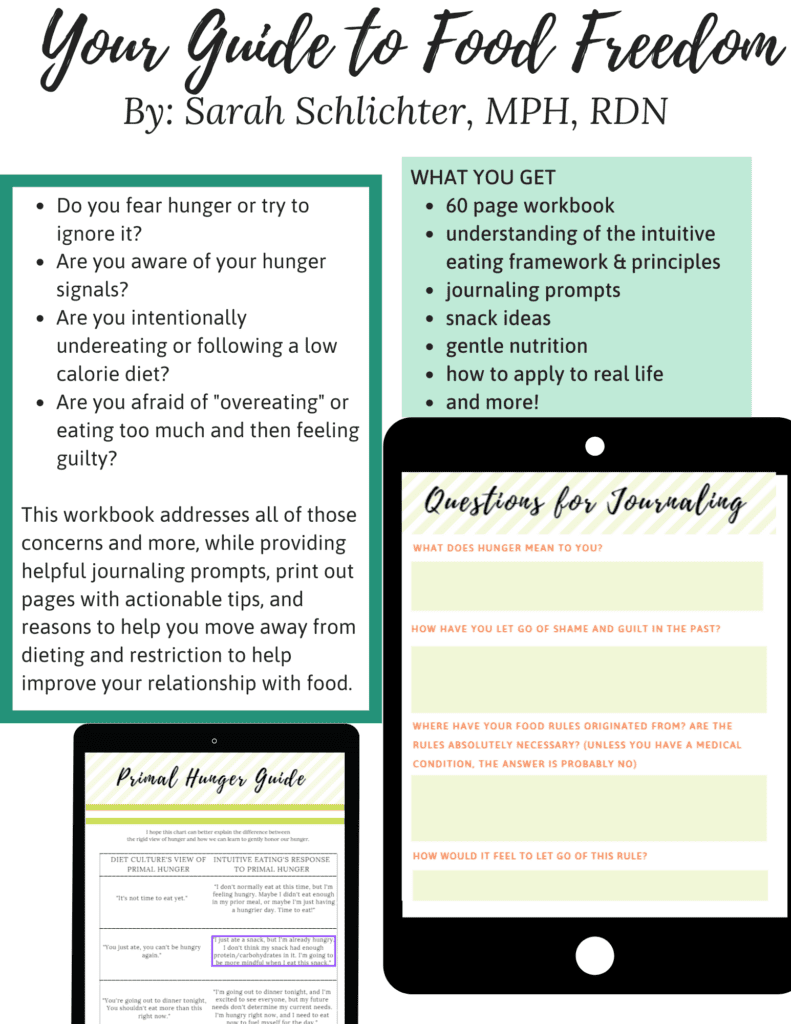
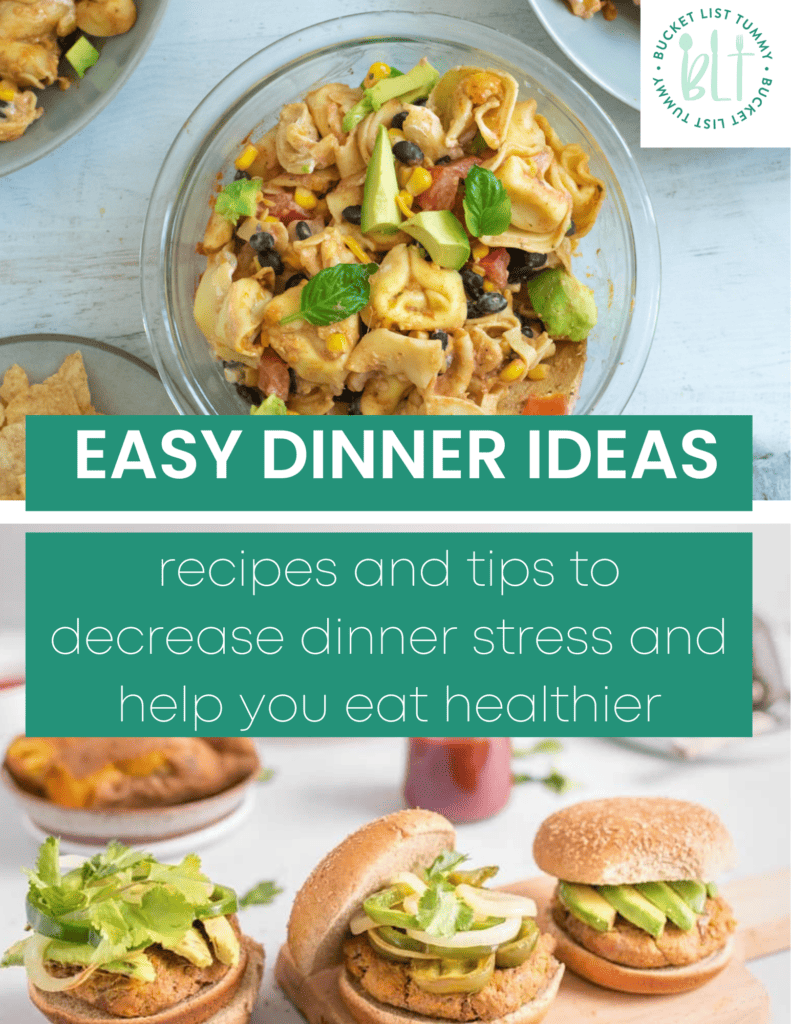
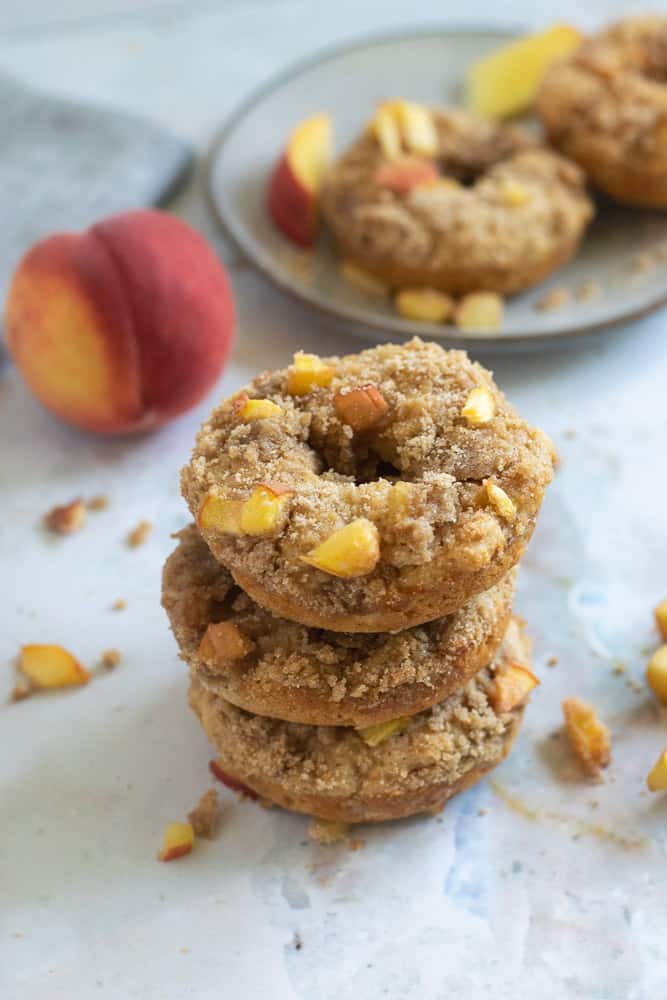

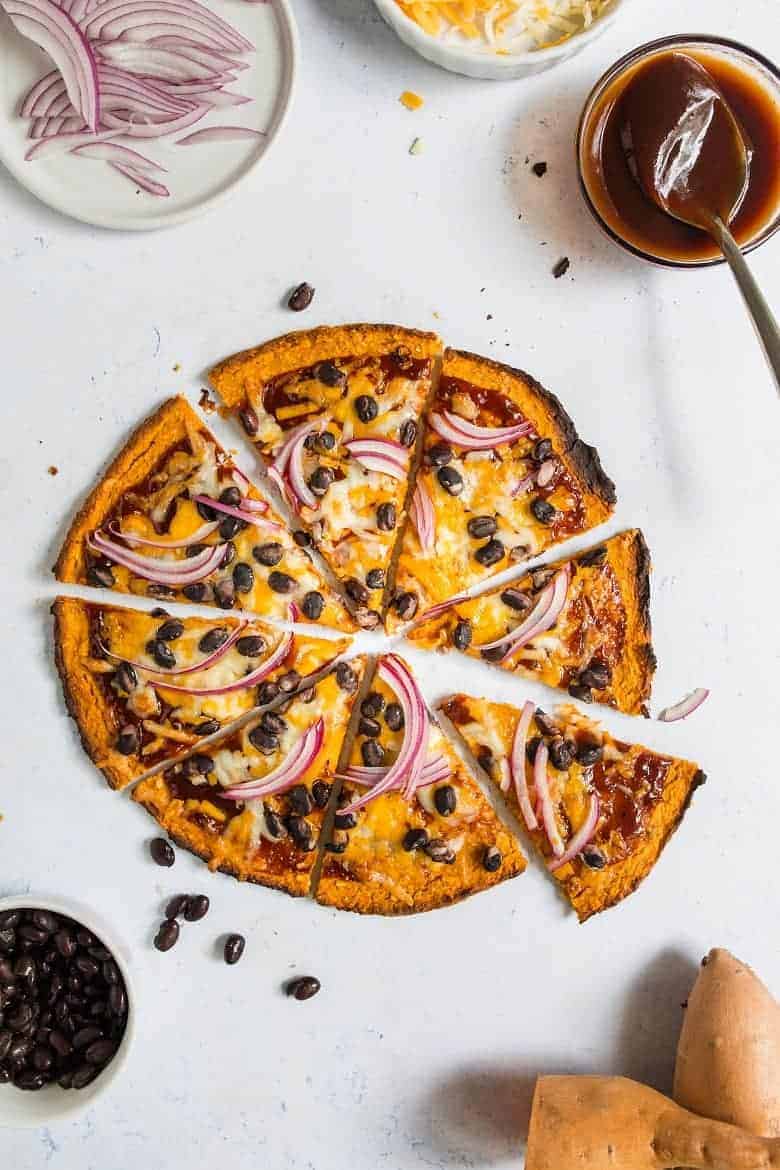
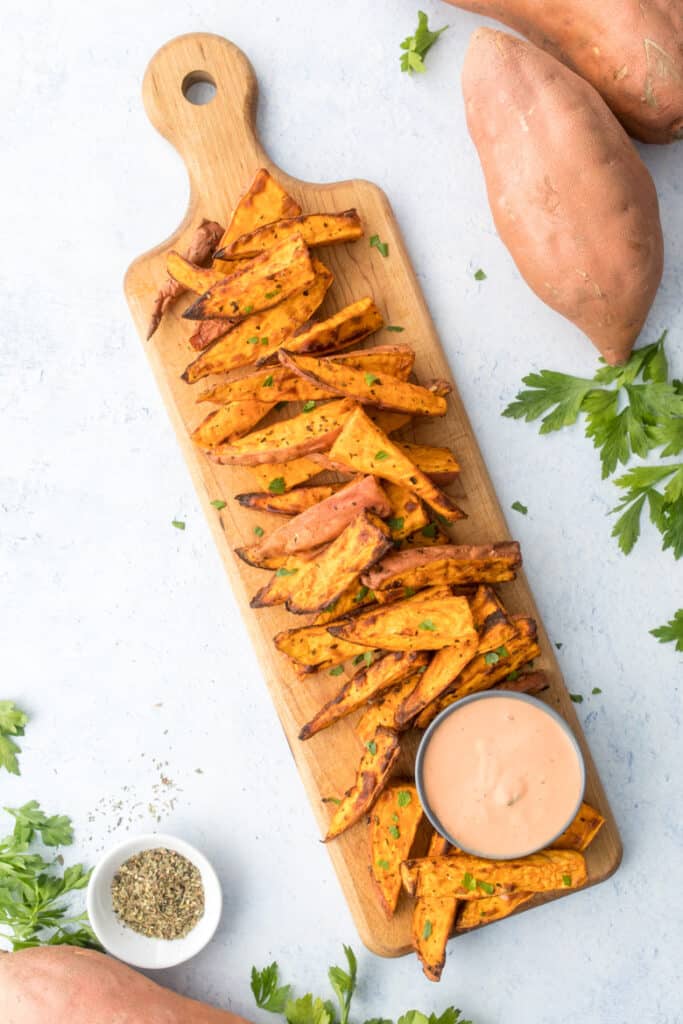
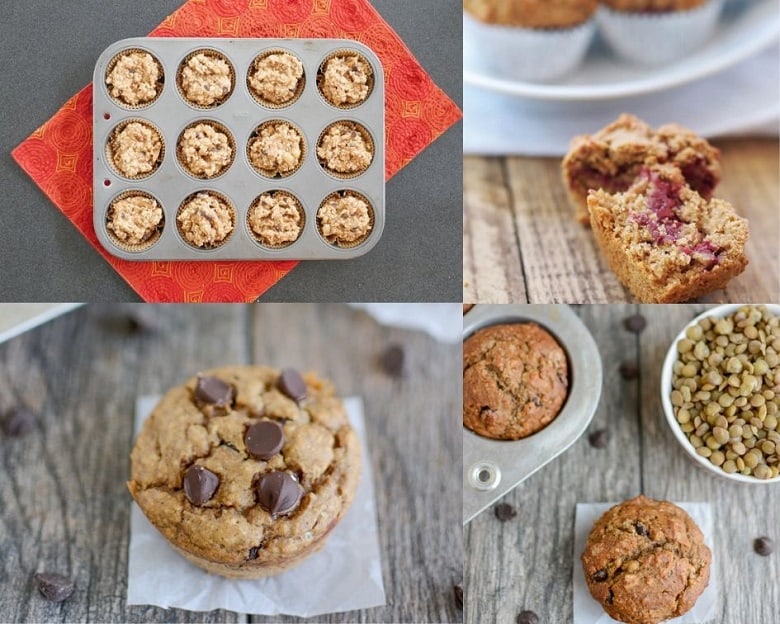
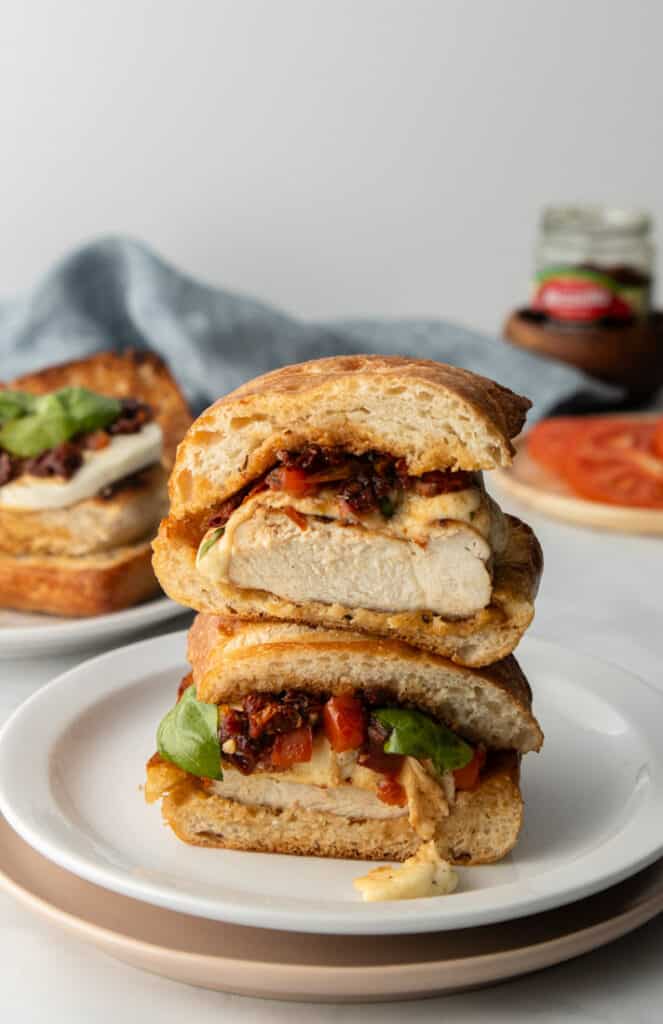
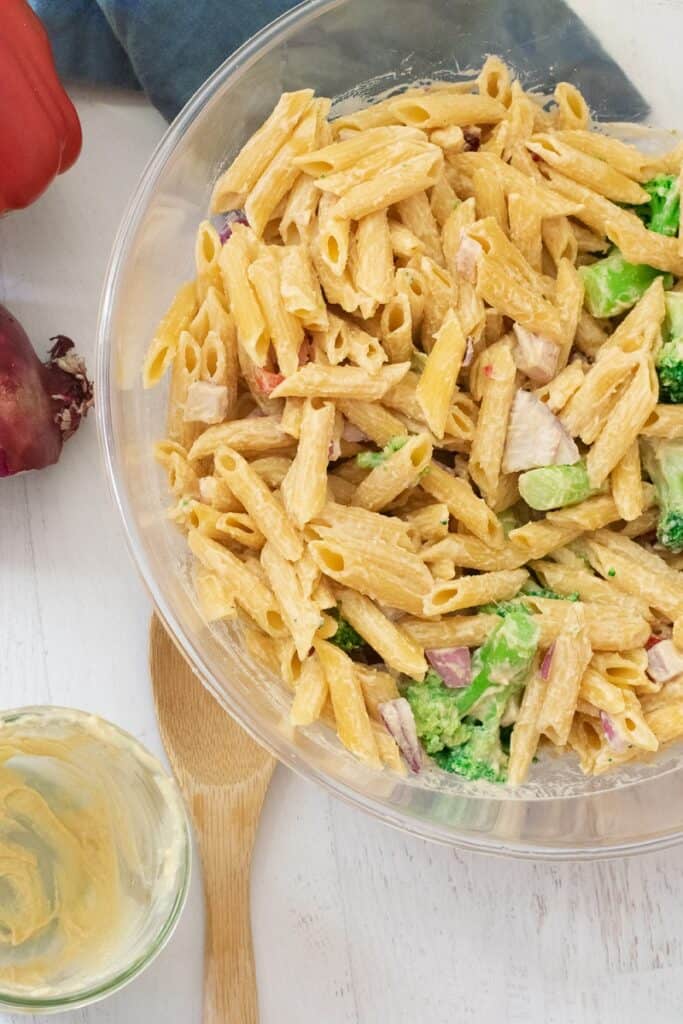

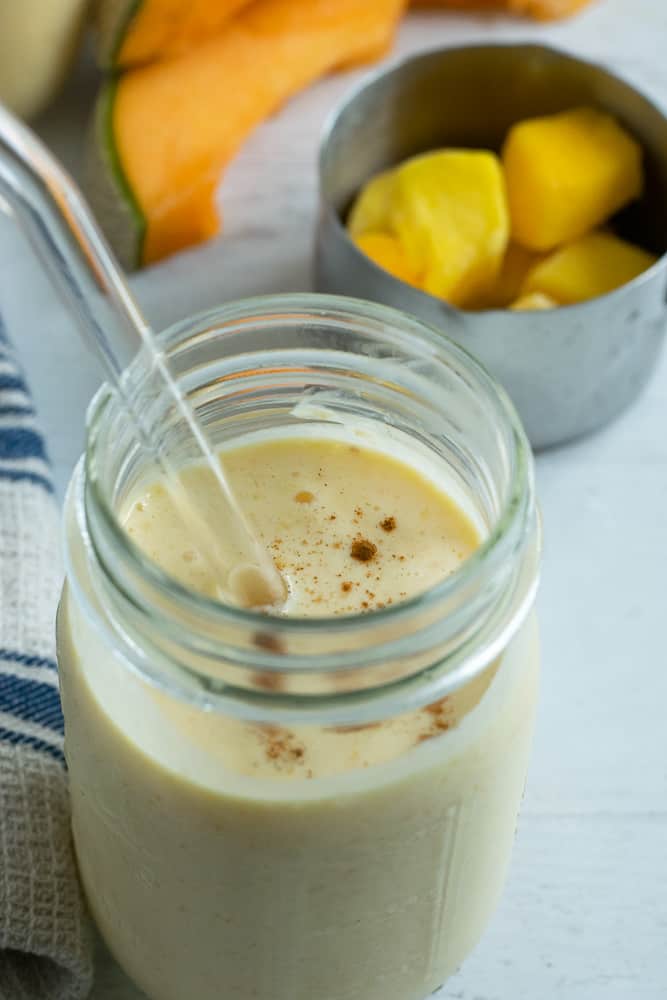
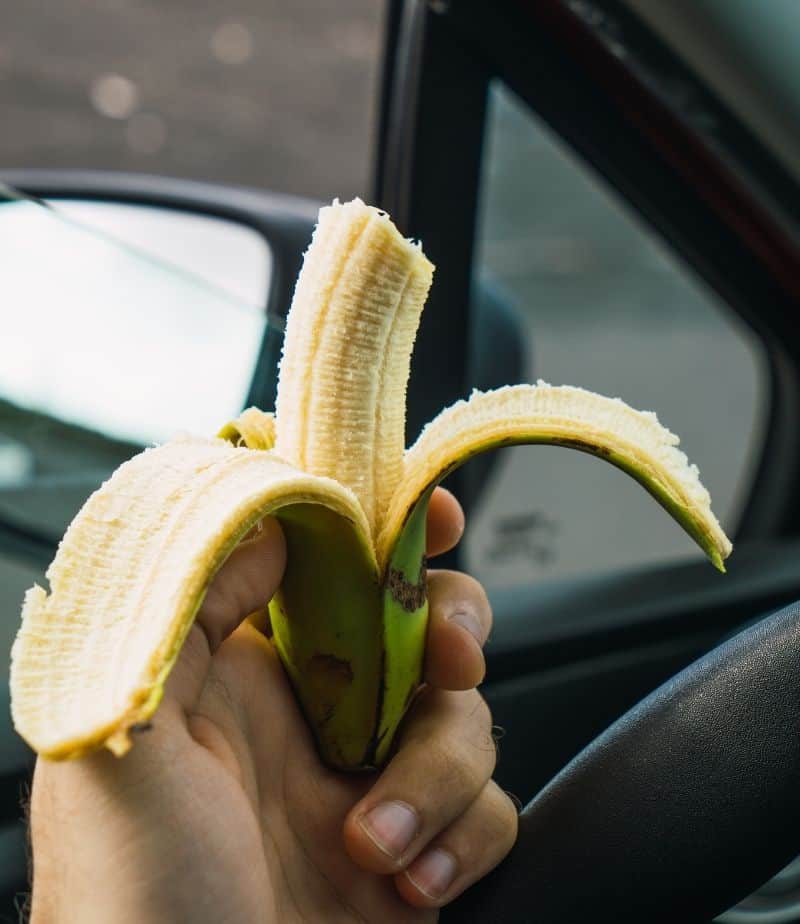
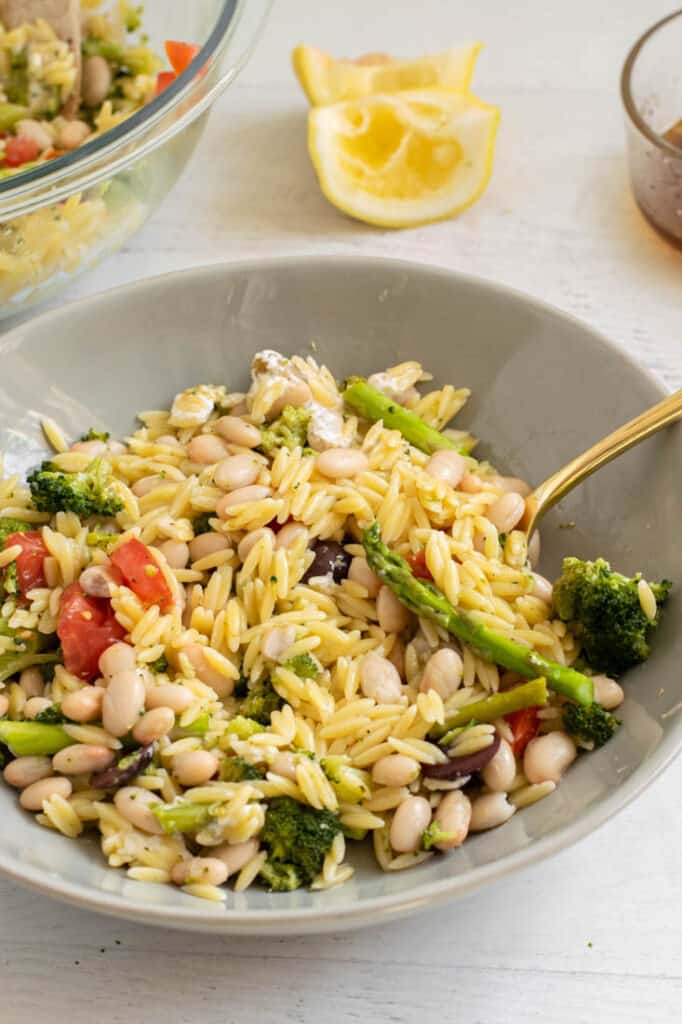
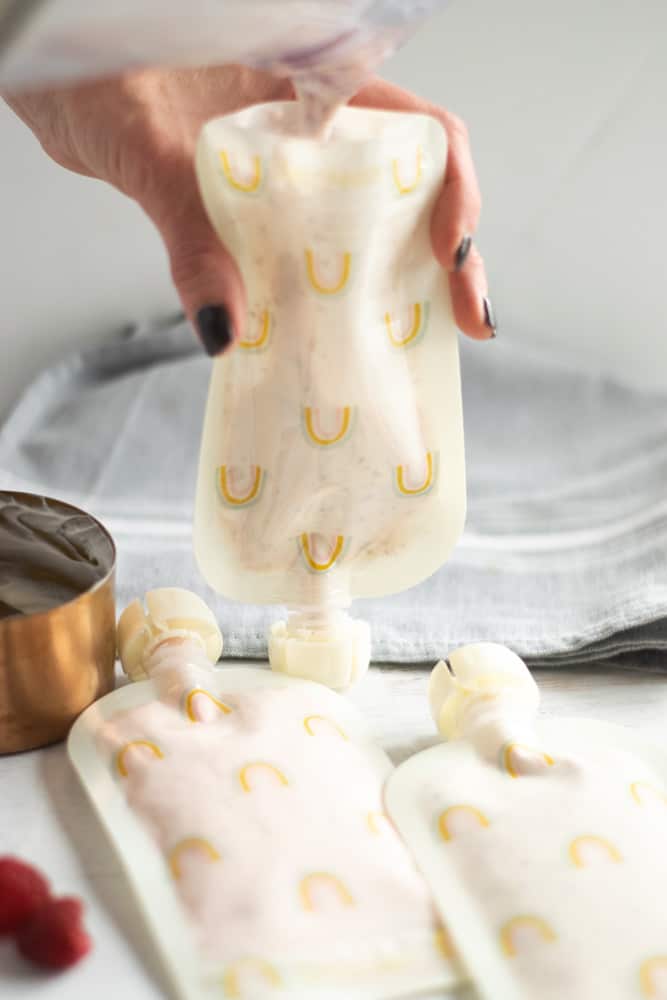
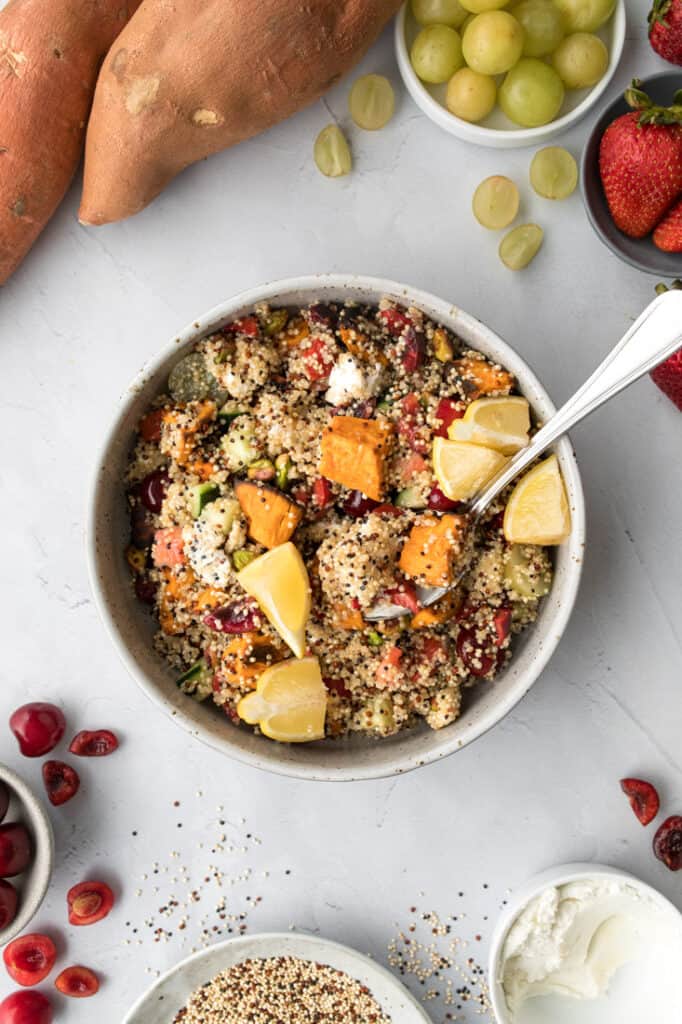

Like This Content?
Support Bucket List TummyI am practicing intuitive eating, and yesterday that meant that I really only wanted the coffee and half a salad I had earlier that day. However, I went to a strenuous spin class that night (which I love going to for reasons other than the calorie burn) and found myself not performing at my usual level. I was tired and cranky. The toughest part of this, for me, is finding that balance between making sure I’ve eaten enough beforehand to fuel me while being sure to honor hunger cues.
I am practicing intuitive eating, and yesterday that meant that I really only wanted the coffee and half a salad I had earlier that day. However, I went to a strenuous spin class that night (which I love going to for reasons other than the calorie burn) and found myself not performing at my usual level. I was tired and cranky. The toughest part of this, for me, is finding that balance between making sure I’ve eaten enough beforehand to fuel me while being sure to honor hunger cues.
It can be very difficult, Janet, so give yourself some compassion! What I find most often, especially with those just starting their intuitive eating journey, is that they may not always have consistent hunger cues. You may be listening to them when you feel them but they may be subdued for many reasons, which I would encourage exploring. It can also help to eat consistent meals until you start getting regular hunger cues but I would highly recommend working with a dietitian for personalized advice.
Ah I love this post! I hadn’t heard this perspective on intuitive eating as it relates to athletes before so I really enjoyed reading this!
THANK YOU FOR THIS! I often don’t feel super hungry after exercise, and sometimes I have to fight guilt for eating more even when I’m “not hunger” – but I know my body needs the fuel. So, again, thank you!
Definitely need to work on the whole not snacking just because I’m bored part!
Of couse I want more on intuitive eating. I think the more of us who talk about it the better! Great post.
Agreed!
It usually depends on the type of exercise or how long it was. I usually work out before breakfast, so I automatically make a meal afterwards, hungry or not. If I am doing a long run, sometimes it knocks out my appetite, other times I am ravenous at the end. Either way, I eat and relax afterwards. I enjoy eating so it’s usually not a problem 🙂
Alot of my post running meals are out of habit – hungry or not, I know what I’m going to eat.
Very interesting! Ive been reading more about this and would like to learn more. Often times Im not hungry after a workout but I make sure to eat something anyway.
It’s a good practice to try to get that fuel to your muscles sooner rather than later, in my opinion!
Wow lady – SO much information in this post. Thank you so much for laying this all out there! As someone who struggled with an eating disorder as well as exercise obsession, eating intuitively has taken a bit longer for me to grasp. There are some days that I’m absolutely starved after a workout and other days that I’m not, even though I spent the same amount of time in the gym doing nearly the same thing. It’s on those days that I really need to reflect and focus on refuleing my body the proper way, even if it isn’t necessarily signaling me for food.On those days I tend to have a smaller post-workout meal, however I make up for it by having another snack an hour later or so!
I think that can be one of the challenges – our bodies are different each and every day. Some days we may be hungrier than others!
Loved this post! I’m a distance runner and really trying to practice intuitive eating so this was perfect! I’m usually not hungry right after my runs but then seem to get really hungry during the day. I always eat right after no matter what because I know my body needs it to repair. I struggle with the “runger” I feel later though. I want to honor it but keep get stuck at feeling like I’ll be eating too much brcause you often read that running increases hunger and that you should watch it because it’s “false” hunger!! Im trying to just trust my body and honor what it’s asking for and forget all those crazy things media tells us!
It sounds like you are doing a good job of being aware – the more we can trust ourselves, the better! Hunger is a sign that our bodies need fuel 🙂
I’m always so hungry after a workout but I try to make sure that I don’t overeat!
If you’re always really hungry after, maybe you could try eating a bit more before?
Yes. Yes. Yes. The fact that my appetite definitely decreases after a long run makes it tough to just listen to my hunger, because my body is actually hungrier than I think it is. I have to kind of feed it even though I’m not hungry. I love that you keep the balance here Sarah; it’s such a blessing to come and get your advice about these things because I have definitely struggled with fueling for a certain amount of running. I absolutely LOVE running, but sometimes I haven’t been the best at fueling myself for it.
You are so sweet Emily, I’m glad you enjoy it. Fueling can be tricky right after – if I’m not hungry after a really long run, I’ll sip on some chocolate milk or a smoothie, so at least you’re starting to replenish those muscles.
I am definitely very hungry after I exercise…usually like 15-30 minutes after. I have been meaning to read that book and I keep forgetting! This is a really great post, Sarah. Spot on as usual!
Thanks so much for reading, Heather!
I am definitely someone who doesn’t feel hungry after a workout, and rather feels it all the next day or – even more so – on a rest day. This can definitely pose some potential mistakes or difficulties when not feeling like eating afterwards, but like you say, this is a prime example for when we may have to replace the typical “intuitive eating” guidelines with more conscious choosing. I’m getting better at this for sure but I’d still like to get better at eating snacks after activity rather than waiting for the next meal.
It can be tricky when we don’t have an appetite! I find that smoothies can be great remedies for these times, or adding in an extra snack throughout the day. Otherwise, I’ll be feeling it the next few days as my body tries to “catch up”